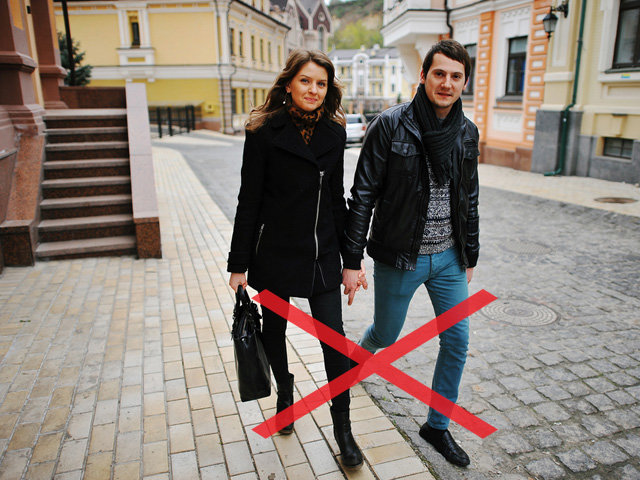I think so, I hope so, if so... (B1)
Zástupné SO (328)
Zástupné SO – procvičování:
Na Landigo máme další lekce se SO:
- So am I, neither am I... (A2)
- So vs. such (A2)
- Too, so, as well, either... (B1)
Did Andrea catch the bus? – I haven't heard from her, but I hope so.
|
I hope so.
|
|
I hope she caught the bus.
|


SO často používáme jako zástupné slovíčko. Díky SO se můžeme vyhnout opakování toho, co bylo právě řečeno:
|
Do you think it'll be sunny? – I hope so. (= I hope it'll be sunny.)
|
|
Will you go shopping? – I don't think so. (= I don't think I'll go shopping.)
|
|
Are you hungry? If so (= If you are hungry), there's a pizza in the fridge.
|
|
Did you cook something? – No. I didn't do so. (= I didn't cook.)
|
SO používáme v následujících případech:
- Se slovesy typu THINK, SUPPOSE, HOPE:
I think so.I don't suppose so.
- Namísto celé věty:
If you're hungry, there's a pizza.If so, there's a pizza.
- Namísto části věty:
I didn't cook.I didn't do so.
I think so. = Myslím, že ano.
Pokud chceme vyjádřit domněnku, že to, co bylo řečeno, platí a nechceme se opakovat, použijeme sloveso typu THINK, SUPPOSE, HOPE + SO:
| Is the café closed now? | |
|---|---|
|
I think so.
|
Myslím, že ano. |
|
I suppose so.
|
Předpokládám, že ano. |
|
I hope so.
|
Doufám, že ano. |
|
I expect so.
|
Očekávám, že ano. |
|
I believe so.
|
Věřím, že ano. |
|
I guess so.
|
Řekl bych, že ano. |
|
It appears so.
|
Zdá se, že ano. |
|
It seems so.
|
|
|
I'm afraid so.
|
Obávám se, že ano. |
Neříkáme: I think yes., I think that yes., I think it., I think.
Will you go kayaking tomorrow? – I think so. Do you want to join us?
|
I think so.
|
|
I think we'll go kayaking.
|


The Moores look really tan, have they been on holiday recently? – It seems so.
|
It seems so.
|
| It seems yes. |
| It seems. |


I don't think so. = Myslím, že ne.
Se slovesy THINK, SUPPOSE, EXPECT, BELIEVE, APPEAR a SEEM použijeme v záporu DON'T/DOESN'T/DIDN'T + SO:
|
I don't think so.
|
|
I don't suppose so.
|
|
I don't expect so.
|
|
I don't believe so.
|
|
It doesn't appear so.
|
|
It doesn't seem so.
|
Are Mitch and Abby coming over tonight? – I don't believe so.
|
I don't believe so.
|
|
I don't think so.
|
|
It doesn't appear so.
|


I asked Cheng whether he could take time off next month. He replied he didn't expect so.
|
He didn't expect so.
|
| He didn't expect yes. |
| He expected not so. |
| He expected not. |


I hope not. I guess not. I'm afraid not...
Se slovesy HOPE, GUESS a BE AFRAID použijeme v záporu NOT:
|
I hope not.
|
|
I guess not.
|
|
I'm afraid not.
|
Neříkáme: I don't hope so., I hope no.
Se SUPPOSE můžeme použít DON'T/DOESN'T/DIDN'T + SO nebo pouze NOT:
|
I don't suppose so.
|
|
I suppose not.
|
U THINK, EXPECT a BELIEVE je varianta s NOT možná, ale je velmi formální. Proto je lepší použít DON'T/DOESN'T/DIDN'T + SO:
|
I don't think so.
|
|
I think not.
|
|
I don't expect so.
|
|
I expect not.
|
|
I don't believe so.
|
|
I believe not.
|
Will you be home for dinner? – I guess not. Unfortunately, I'm still stuck in traffic.
|
I guess not.
|
|
I'm afraid not.
|


It looks like your arm could be broken. – I hope not!
|
I hope not.
|
| I don't hope so. |


Is it going to snow? – I don't suppose so.
|
I don't suppose so.
|
|
I suppose not.
|


SO = nahrazuje celou větu
SO může zastoupit celou vedlejší větu, obvykle se spojkou IF nebo se slovesy typu TELL/SAY:
|
Do you fancy that girl? If so (= If you fancy that girl), you should ask her out.
|
|
They won the championship! – I know. I told you so. (= I told you they would win it.)
|
Have you packed your luggage yet? If so, put it into the car.
|
If so, put it in the car.
|
|
If you've packed it, put it in the car.
|


Dan might break up with you. Don't tell him I said so!
|
Don't tell him I said so.
|
|
Don't tell him I said he might break up with you.
|


Did you like the strawberry dessert? If not, I won't make it again.
|
If not, I won't make it again.
|
|
If you didn't like it, I won't make it again.
|


SO = nahrazuje část věty
SO může zastoupit část věty:
|
I told you to wash the dishes. Why did you not do so (= why didn't you wash them)?
|
|
If you have not called him yet, please do so (= call him) today.
|
|
He is stressed out. He has been so (= He's been stressed out) since his promotion.
|
Toto použití SO je poměrně formální.
V hovorovější angličtině se namísto SO používá IT, THAT, THIS WAY apod.:
|
I told you to wash them, why didn't you do it?
|
|
If you haven't called, do that today.
|
|
He's stressed out. He's been this way since his promotion.
|
My bigger dog Dexter is very calm, whereas the smaller one is less so.
|
He is less so.
|
|
He's less that way.
|
|
He's less calm.
|


You wanted to go travelling after college. Why have you not done so?
| Formálnější: |
Why have you not done so?
|
| Hovorovější: |
Why haven't you done it?
|


Zástupné SO – nejdůležitější body a tip na závěr:
- SO používáme se slovesy typu THINK, SUPPOSE, HOPE (I think so, I don't think so).
- SO může nahrazovat celou větu nebo část věty.
- Doporučujeme si procvičit zástupné SO v našich cvičeních.
